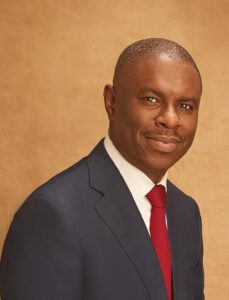By Olukorede Yishau
To an average human being, a good name is better than gold and silver. There are, however, some who do not care. All that matters is being able to get money. If you like, view their personality or organisation with suspicion, they simply do not care.
Imagine someone who wants to make a difference being thrown into this kind of environment. What will you do? The first thing will be to chase results, and that is impossible without the ability to get the right information to find out why things are the way they are. You need to dig deep for unsaid things and invisible obstacles. It is only after this that you can define what the new direction should be for you and the organisation, and smartly build multiple possibilities and achieve thrilling outcomes.
You also need to get a team that can initiate strategic change and successfully manage to give your agency or organisation relevance, even far beyond your country’s shores. You need to come up with high-level change management, using clearly thought out principles, processes, strategies and approaches.

Your team must also do things differently and manage challenges of breaking from the norm which is usually difficult. Doing things differently will involve the team examining the organisation, redefining priorities, changing perspectives and behaviours, and developing a guide for positive direction.
The perceived bad image of the organisation needs to be varnished, not with propaganda or empty words, but with new and acceptable actions. To turn around the image of the organisation will entail new operating paradigm and a plan to help the organisation bounce back on its reputation.
Confidence and trust must be rekindled in staff, and their capacity must be enhanced so that they will believe in the new vision, be motivated to champion change, and remain the organisation’s greatest asset. It is actually the people who determine the success or failure of an organisation.
The acquisition of new knowledge, both explicit and tacit, by staff, which will aid them to better discharge their responsibilities, should never be compromised, just as new corporate culture, shared values and practices have to be institutionalised. The place of bold and strategic initiatives in reforming and standardising your regulatory and enforcement operations, to ensure greater compliance among operators, can only be ignored at your peril. More so, available resources need to be properly used to perform the organisation’s core function so as to achieve optimal results.
If your organisation has to do with some form of security, whether on land or water, definite strategies must be formulated and you have to be ready to invest in intelligence and hardware to battle insecurity. This is not an area your operations can afford to suffer many setbacks.

Also, your team must be unrelenting in entrenching technology in workflow to achieve efficiency and effectiveness.
Laws and regulations, and the dire consequences of not properly using them, can damage reputation and create a bad name that will take years to correct. If you are working with outdated laws and regulations, get rid of them so as to have a globally-recognised and respected organisation.
At every point, the lessons, challenges, failures, and successes must be tracked so that the unfinished business can be noted and addressed. These facts can be replicated by private and public sector organisations/agencies to fulfill their mandate and achieve excellence.
Some of these came in handy for Dr. Dakuku Peterside when he got the mandate to lead an agency with a bad name. For a long time, the Nigerian Maritime Administration and Safety Agency (NIMASA) was viewed with suspicious eyes. In his about-to-released book ‘Strategic Turnaround: Story of a Government Agency’, Dr. Peterside gives insight into how he and his team achieved feats never attained before President Muhammadu Buhari made him the agency’s director-general.
The book’s postscript, written by a leadership trainer, Dr. Maxwell Ubah, brings to the fore key leadership lessons from the book and offers a unique perspective on organisational renewal.
The book comes in an easy-to-follow style. He deploys anecdotal technique where necessary to spice up his narration and makes for engrossing reading.
Peterside’s aesthetic taste is very good and he writes beautifully. His caustic critique of the NIMASA before him does not come up as an indictment of the men who had headed the agency before him; rather it shows that he is a man after legacy and, given that a member of his team was chosen to continue what he started, chances are that the legacy will be improved on.
It is not surprising that Chris Bellamy, a Professor Emeritus of Maritime Security at the University of Greenwich, who is also the Editor-in-Chief, International Journal of Maritime Crime and Security, describes the book as “the definitive case study of the radical reform of the Nigerian Maritime Administration and Safety Agency (NIMASA), and of the entire maritime sector in Nigeria”.
The book is bound to generate talks in the government circle and other facets of Nigerian life. It gives vital facts about his four-year tenure as NIMASA’s director-general. The agency was seen as the go-to place for free cash from government purse. Its image was at its lowest ebb when Peterside got President Muhammadu Buahri’s nod on March 10, 2016 to head and reposition it. It did not take long before Peterside and his team stopped the haemorrhage, and the agency became one of the key agencies remitting huge sums into the Federation Account. This book is about the management and leadership principles applied to achieve this and other feats, including a change in perception.

Those in positions of authority and those hoping to be and desirous of turning around organisations will gain from this book. In it, they have a guide for breathing life into an agency everyone seemed to have given up on.
It is highly recommended for those in position of authority and those hoping to be. In it, they have a guide for breathing life into an agency everyone seemed to have given up on.
*Yishau is a columnist and author.